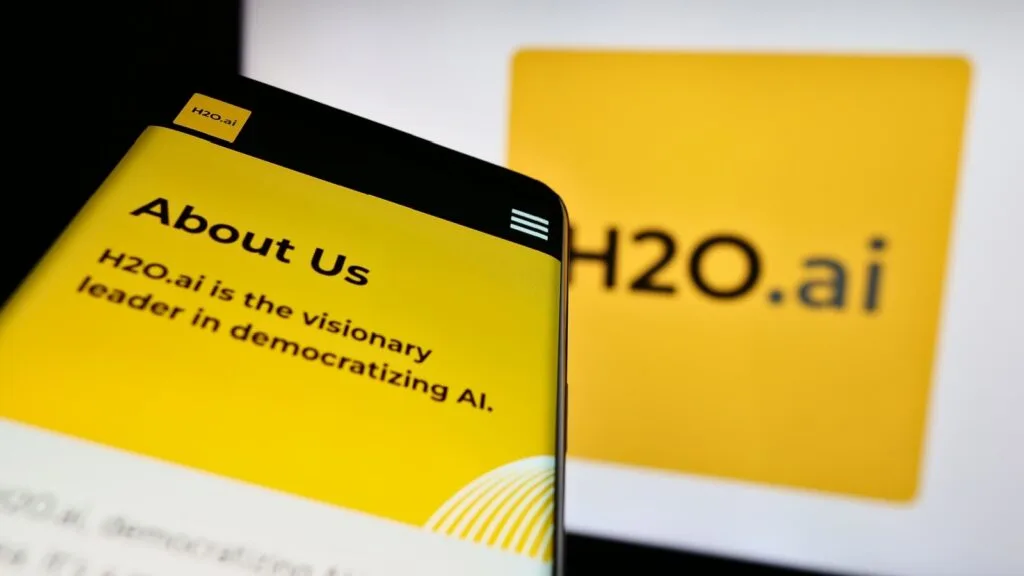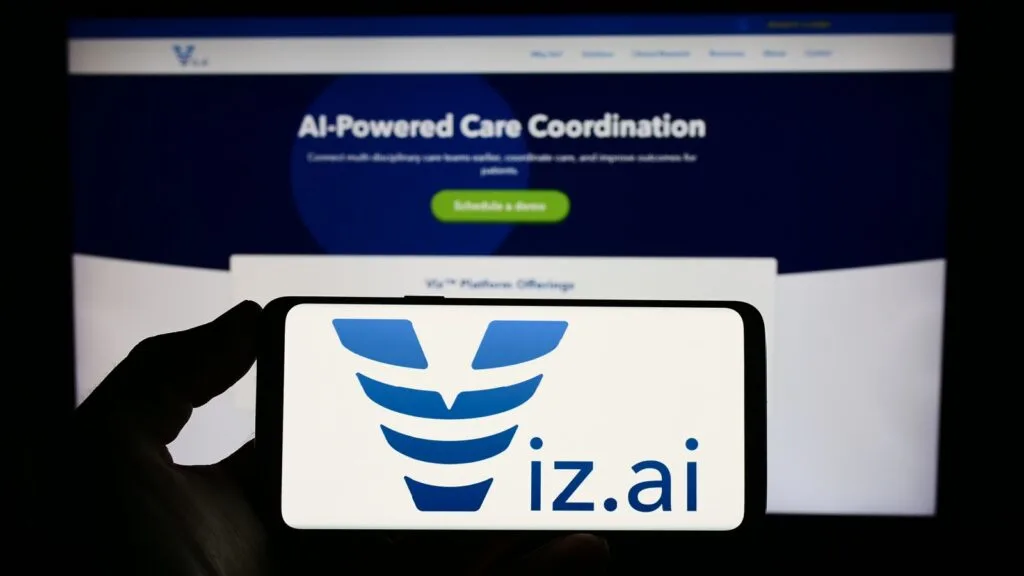Artificial Intelligence (AI) is not just a buzzword—it’s a transformative force across industries. This slideshow explores twenty AI tools that are revolutionizing fields from healthcare to finance. See how these tools can automate tasks, provide analytical insights, and enhance decision-making processes.
IBM Watson (Healthcare)

IBM Watson is revolutionizing healthcare by providing advanced diagnostics and personalized treatment plans. It analyzes vast amounts of medical data to assist doctors in making more accurate diagnoses. This tool can also identify potential treatments and predict patient outcomes based on historical data.
In addition to diagnostics, IBM Watson enhances patient care by managing medical records and ensuring they are easily accessible. It helps in identifying patient patterns and predicting potential health issues before they arise. The tool’s ability to process natural language allows it to understand and analyze unstructured data, such as doctor’s notes and medical journals.
Salesforce Einstein (Sales and Marketing)

Salesforce Einstein is transforming sales and marketing by providing predictive analytics and automated insights. It helps businesses understand customer behavior and predict future sales trends. By analyzing data from various sources, it can recommend the best actions to take for improving customer engagement and sales performance.
This tool also automates routine tasks, freeing up time for sales and marketing teams to focus on strategic activities. Einstein’s natural language processing capabilities allow it to understand customer queries and provide relevant responses. Its integration with other Salesforce products makes it a comprehensive solution for customer relationship management.
OpenAI Codex (Software Development)

OpenAI Codex is changing the software development landscape by enabling code generation from natural language descriptions. Developers can use this tool to quickly prototype and build applications without writing extensive code. It supports multiple programming languages and frameworks, making it versatile for various development tasks.
Codex also helps in debugging and optimizing existing code, saving developers time and effort. It can suggest improvements and provide examples of best practices based on its extensive training data. This tool democratizes coding by making it more accessible to non-programmers who want to create software solutions.
Grammarly (Writing and Editing)

Grammarly is a game-changer in the field of writing and editing, offering real-time grammar and style suggestions. It helps users improve their writing by identifying errors and suggesting corrections. Beyond basic grammar, Grammarly provides insights into writing clarity, engagement, and delivery.
The tool also offers a plagiarism detection feature, ensuring content originality. It integrates seamlessly with various platforms, including email, social media, and word processors. Grammarly’s AI-driven insights help writers of all levels produce polished and professional content.
Blue River Technology (Agriculture)

Blue River Technology is transforming agriculture with its precision farming solutions. Its advanced tools use computer vision to identify and manage crops, optimizing the use of resources like water and fertilizers. This leads to higher crop yields and reduced environmental impact.
The technology also helps farmers monitor plant health and detect pests early, preventing significant crop losses. By automating tedious tasks, Blue River Technology allows farmers to focus on strategic decision-making. This innovative approach supports sustainable farming practices and enhances overall productivity.
Kensho (Finance)

Kensho is revolutionizing the finance industry by providing advanced analytics and predictive insights. It processes vast amounts of financial data to identify trends and forecast market movements. This helps financial institutions make informed investment decisions and manage risks more effectively.
The tool’s natural language processing capabilities allow it to analyze news articles, earnings reports, and other unstructured data sources. This provides a comprehensive view of the financial landscape. Kensho’s AI-driven insights enable quicker and more accurate decision-making in a fast-paced industry.
Suki AI (Healthcare)

Suki AI is enhancing the healthcare industry by offering voice-enabled clinical assistants. This tool helps doctors by transcribing patient interactions and managing medical records. It allows healthcare professionals to focus more on patient care rather than administrative tasks.
Suki AI also integrates with electronic health record systems, ensuring seamless data management. Its natural language processing capabilities enable it to understand and respond to complex medical terminology. This tool improves the efficiency and accuracy of healthcare documentation.
Gong (Sales)

Gong is transforming sales teams with its conversation analytics platform. It records and analyzes sales calls, providing insights into customer interactions and sales strategies. This helps sales representatives understand what works and what doesn’t in their pitches.
The tool uses advanced algorithms to identify patterns and trends in customer conversations. It provides actionable recommendations to improve sales performance. Gong’s analytics help sales managers coach their teams more effectively, driving better results and higher revenue.
H2O.ai (Finance and Marketing)

H2O.ai is making waves in finance and marketing with its open-source machine learning platform. It helps organizations build predictive models to understand customer behavior and market trends. This enables more effective targeting and personalized marketing strategies.
In finance, H2O.ai assists in risk management and fraud detection by analyzing transaction data. Its scalability allows it to handle large datasets, providing accurate and timely insights. The platform’s user-friendly interface makes it accessible to both data scientists and business analysts.
Affectiva (Automotive and Marketing)

Affectiva is revolutionizing the automotive and marketing industries with its emotion recognition technology. It analyzes facial expressions and vocal intonations to understand human emotions. This helps automotive companies create safer and more personalized driving experiences.
In marketing, Affectiva’s technology provides insights into consumer reactions to advertisements and products. It allows brands to create more engaging and emotionally resonant campaigns. By understanding emotional responses, companies can improve customer satisfaction and loyalty.
DataRobot (Data Science)

DataRobot is transforming the data science landscape by automating the creation of machine learning models. It enables data scientists to build and deploy models faster and with greater accuracy. The platform supports various data types and integrates with multiple data sources.
DataRobot also provides tools for model evaluation and interpretation, ensuring transparency and trust in AI decisions. Its automated machine learning capabilities make it accessible to non-experts. This democratizes data science and accelerates the adoption of AI across industries.
Viz.ai (Healthcare)

Viz.ai is enhancing healthcare by providing AI-driven stroke detection and workflow optimization. It analyzes medical images to identify strokes quickly, enabling faster treatment. This improves patient outcomes and reduces the risk of long-term damage.
The tool also streamlines communication between healthcare providers, ensuring timely intervention. Viz.ai’s integration with hospital systems allows for efficient data sharing and coordination. This results in better patient care and more efficient use of medical resources.
PathAI (Pathology)

PathAI is revolutionizing pathology with its AI-powered diagnostic tools. It analyzes pathology slides to assist pathologists in diagnosing diseases accurately. This reduces the risk of human error and speeds up the diagnostic process.
The tool also provides insights into disease progression and treatment efficacy. PathAI’s advanced algorithms can identify subtle patterns that may be missed by the human eye. This leads to more accurate diagnoses and personalized treatment plans for patients.
Darktrace (Cybersecurity)

Darktrace is transforming cybersecurity with its AI-driven threat detection and response. It monitors network traffic to identify unusual patterns and potential threats. This allows organizations to respond to cyberattacks in real-time, minimizing damage.
The tool’s self-learning capabilities enable it to adapt to new threats and protect against evolving cyber risks. Darktrace also provides insights into vulnerabilities and helps strengthen security measures. Its proactive approach enhances overall cybersecurity resilience.
Cognitivescale (Finance and Healthcare)

Cognitivescale is making a significant impact in finance and healthcare with its AI-powered decision-making tools. It provides predictive analytics to help financial institutions manage risks and optimize investments. In healthcare, it assists in patient care management and treatment planning.
The tool’s ability to process large volumes of data ensures accurate and timely insights. Cognitivescale’s AI solutions improve operational efficiency and decision-making. Its flexibility and scalability make it suitable for various industry applications.
BlueDot (Public Health)

BlueDot is revolutionizing public health by providing early detection of infectious diseases. It analyzes data from multiple sources, including news reports and flight patterns, to identify outbreaks. This allows health authorities to respond quickly and prevent the spread of diseases.
The tool also provides insights into disease transmission and potential impact. BlueDot’s predictive capabilities help in planning and resource allocation. Its timely alerts and data-driven insights enhance global health security.
Cloudera (Big Data)

Cloudera is transforming big data analytics with its comprehensive platform. It enables organizations to store, process, and analyze large datasets efficiently. This helps in uncovering valuable insights and making data-driven decisions.
The tool supports various data types and integrates with multiple data sources. Cloudera’s advanced analytics capabilities make it suitable for industries like finance, healthcare, and manufacturing. Its scalability and flexibility ensure it meets the diverse needs of businesses.
Tempus (Healthcare)

Tempus is enhancing precision medicine by providing genomic sequencing and data analytics. It helps healthcare providers understand the genetic makeup of diseases and tailor treatments accordingly. This personalized approach improves patient outcomes and treatment efficacy.
The tool also integrates with electronic health records, ensuring seamless data management. Tempus’s advanced analytics provide insights into disease progression and treatment responses. Its innovative solutions support research and clinical decision-making in healthcare.
Drift (Sales and Marketing)

Drift is transforming sales and marketing with its conversational AI platform. It enables businesses to engage with customers in real-time through chatbots and automated messaging. This improves customer experience and increases conversion rates.
The tool also provides insights into customer interactions and preferences. Drift’s AI-driven solutions help in personalizing marketing campaigns and sales strategies. Its integration with other business tools ensures a seamless customer journey.
Zoox (Automotive)

Zoox is revolutionizing the automotive industry with its autonomous vehicle technology. It combines AI, robotics, and advanced sensors to create self-driving cars. This technology promises to improve road safety and reduce traffic congestion.
The tool also provides insights into vehicle performance and maintenance needs. Zoox’s innovative approach supports the development of sustainable and efficient transportation systems. Its autonomous vehicles represent the future of mobility and urban planning.
